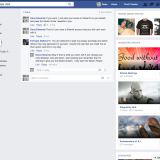HOW JOBS DESTROY WORK (PART ONE) by EXTROPIA DASILVA INTRODUCTION
Anything that bares the title ‘How Jobs Destroy Work’ is bound to be regarded with disbelief by those who love their jobs. Such people do exist: folks who have found employment that is meaningful to them, which nurtures their skills and provides a sense of doing something positive for society. That such people exist could be taken as proof that my essay is wrong, and I confess that the title is, strictly speaking, inaccurate. But I don’t think it is all that inaccurate, and had I called the essay something like ‘Jobs Don’t Always Destroy Work, But Usually They Do’ there would have been nothing wrong with that title.
This is not what we are supposed to believe. We are supposed to believe that jobs create work and that good, meaningful, useful employment is available to all if only we would put in the time and effort to obtain it. And yet, it seems to be the case that most of us are failing to find jobs we love.
When Gallup polled 25 million employees in 189 countries, it found the percentage of workers who feel engaged by their jobs to be 13 percent. To put that another way, close to 90 percent of employees don’t like their jobs, or at least don’t care enough about their mode of employment to see anything engaging about it. Anecdotal evidence might also lead to similar conclusions. I don’t know about you, but most people I know count weekends, bank holidays and vacations as days to look forward to, and Monday on a working week as the worst day of all. At least that Gallup poll can console such people with the knowledge that they are hardly a minority. Most share their frustration of having to trudge off to a job they would rather not do.
So why did so many people fail to achieve that envious goal of securing a dream job? Lack of ambition? Not motivated enough to do what it takes to get a worthwhile career? I am going to argue that they failed because the world of employment actively destroys work much more than it creates it.
DEFINING ‘WORK’
Something needs to be addressed and that is the question, ‘What Is Work?’. To most people, the answer is ‘physical or mental effort that you are paid to do’. But is that really an apt description?
Here is a way in which to achieve full employment. Pay fifty percent of those who are currently unemployed to dig holes and pay the other fifty percent to fill them in. There can be no doubt that full employment could be achieved that way, so why does this solution seem ludicrous? The reason why, I would say, is because such labour is ultimately pointless. Neither percentage achieves anything because the labour of the other percentage undoes all their work. Each is like Sisyphus, pushing that boulder all the way up the hill knowing full well that it must roll all the way back down again.
We can see, then, that paying somebody for their labour does not necessarily make that labour rewarding to the individual or beneficial to society, but I think this point is forgotten all too often. How many times have you heard ‘at least they have a job’ in response to somebody’s soul-deadening labour of questionable social value? This brings us to one of many ways in which jobs destroy work. It is a rather metaphorical point, but nevertheless I think it is important. Jobs have monopolised the word ‘work’ to the extent that nearly everybody thinks that when we talk about work we are talking exclusively about paid employment. In other words, only labour performed for wages is work, and the only reason to work is to receive wages. If you are not in paid employment, that must mean you are not working. So what are you doing? Most people would say you are ‘doing nothing’.
Let’s be clear on what this belief is saying. If you are a person who cares for an elderly relative, preparing their meals, cleaning their home, providing them with company and generally making sure they are well looked after, and you do all this voluntarily for no charge, you are not working. On the other hand, if you are one of those people who cold call homes pretending to be from Microsoft, and you are paid wages or a commission for selling useless security software to gullible consumers, you are working.
When you spell it out like that the attitude ‘only paid jobs are work’ sounds ridiculous but people fall into this way of thinking all the time. I recall a female contestant on a game show who, when asked ‘and what is it that you do?’ replied that she was not working. She had given it up in order to be a mother to her baby son. In what kind of world is a role as important as maternal duty and the raising of the next generation disregarded as work? Answer: one in which jobs have monopolised the word.
This monopolisation of the word work by jobs is insulting in the way it disregards all the non-paying labour that people do each and every day. It’s insulting to mums or dads who are raising children, motivated by parental duty and not the financial bottom line. It’s insulting to those who engage in creative, artistic projects not for monetary profit but because they find intrinsic meaning in doing so. It’s insulting to all those who contributed anything on the Web like a blog, a wiki, an instructional aid a youtube video, or whatever it may be, that was not a commercial venture and instead owed its existence to the fact that its creator or creators were passionate about it.
In the next part: The true definition of work, and how mistaken assumptions about monetary reward lead to unrewarding jobs.
Note, this essay was not written by me. This essay was written by pseudo-anonymous author Extropia Dasilva who has given me permission to introduce her writings to the Steemit community on her behalf: 
References
"Pay fifty percent of those who are currently unemployed to dig holes and pay the other fifty percent to fill them in."
hahahaahah
Downvoting a post can decrease pending rewards and make it less visible. Common reasons:
Submit
This is pure genius and is exactly what I think too. "This monopolisation of the word work by jobs is insulting in the way it disregards all the non-paying labour that people do each and every day."
All of my "jobs" never really took my fascinating ideas seriously. So, over time, I realized that I was the boss I always wanted. I listened to ideas, nurtured them and fed them energy. It's really a question of creative energy flow. Jobs destroy a human's ability to see the natural result of our creative/mental energies. Platforms like Steemit mimic our bodies' natural rhythms. And allow us to find synergy with others in a natural way. I love your and your friends' writing.
Downvoting a post can decrease pending rewards and make it less visible. Common reasons:
Submit
Downvoting a post can decrease pending rewards and make it less visible. Common reasons:
Submit
Dana, I'm guessing that's you?

Downvoting a post can decrease pending rewards and make it less visible. Common reasons:
Submit
I don't know who that is.
Downvoting a post can decrease pending rewards and make it less visible. Common reasons:
Submit
Downvoting a post can decrease pending rewards and make it less visible. Common reasons:
Submit
where did you get this photo from?
Downvoting a post can decrease pending rewards and make it less visible. Common reasons:
Submit
google search
Downvoting a post can decrease pending rewards and make it less visible. Common reasons:
Submit
We should be FB friends, find me: Leah Stella Stephens
Downvoting a post can decrease pending rewards and make it less visible. Common reasons:
Submit
This is basically how I felt every day at all of my various "jobs":

Utter dread on Sunday night gripped my mind, making me have various health issues. These have all pretty much gone away since becoming a freelance writer.
Downvoting a post can decrease pending rewards and make it less visible. Common reasons:
Submit
Keep up the great work @dana-edwards
Upvoted
Downvoting a post can decrease pending rewards and make it less visible. Common reasons:
Submit
Downvoting a post can decrease pending rewards and make it less visible. Common reasons:
Submit